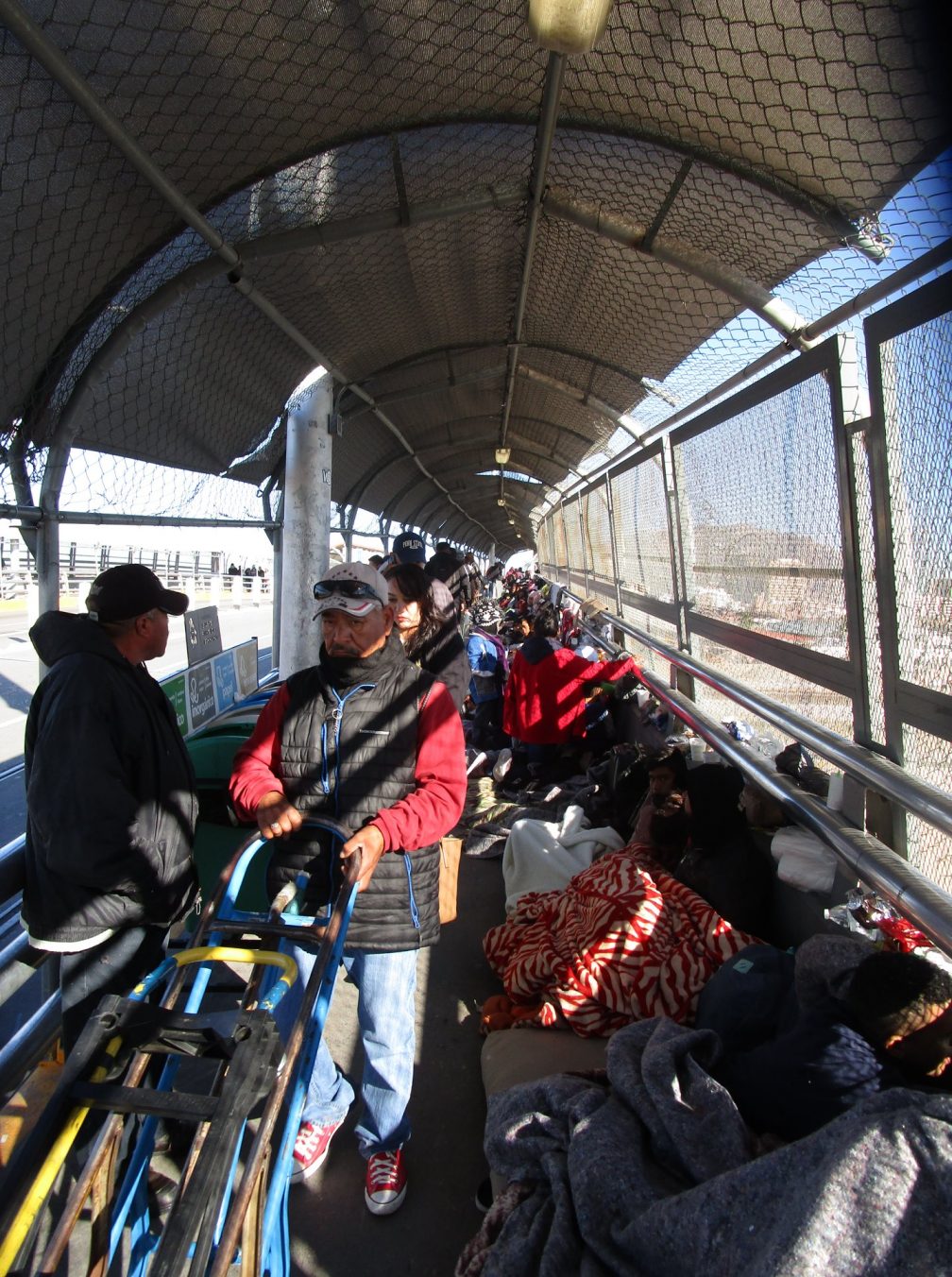With the rise of populist movements that promote racism, nationalism and a damaging treatment of our natural home in many parts of the world, a good area for our personal reflection in this Lenten season, which begins on Ash Wednesday is that of identifying and repenting of the hidden prejudices and prideful certainties within us. These blind us to the dignity of other human beings, as much children of God, and created in God’s image and likeness, as we are, and which harden our hearts towards those sickened or impoverished by a consumerist, throwaway lifestyle that objectivises both poor and planet. I think we can easily become accomplices of the social evils of our times when we blindly grow indifferent to their rise and violence and to their existence to some degree in every human heart.
What are the fears that, deep down, I have about migrating people coming to my country? How do I feel when facing the challenges of climate change for my lifestyle? What keeps me from joining and supporting movements for racial equity?
The arrival of large numbers of refugees at the border communities of El Paso (U.S.A.) and Juárez (Mexico) worried us a few years ago, as many organizations and communities in the region sought to provide shelter and a place for resting, washing, food and fresh clothing for adults and children, sometimes separated from one another by government officials. Where could we get the volunteers and the professionals needed to provide cooked meals, medical care, and the phones needed to contact relatives and friends in the U.S. who could get them bus and air tickets for them to travel with? Most had given addresses in other parts of the country to the authorities, who then required them to make their cases to federal immigration judges in those cities or regions in the coming weeks and months, in order to gain a legal status and permission to stay in the U.S.
But the people from Central America and other parts of the world who arrived actually helped us take care of cooking, house cleaning, and childcare during their stays, while local volunteers, doctors, nurses, lawyers, and others came out of the woodwork to help. Religious and social groups offered to provide one hot meal a day for a week, two weeks, a month. People offered to drive the migrating people to bus stations and airports at the times of their departures. Supermarkets donated pallets of bottled water, funds were donated from around the country, children were kept occupied with our young adults who organized classes and games for them.
We found that our fears were needless, and that people welcomed opportunities to help others and to listen to their stories, if offered, of the life-threatening circumstances that drove them to leave their beloved homelands and cultures. We often found something beautiful and moving happening within us, as we learned the art of welcoming the stranger, and how to channel our emotions into practical actions of solidarity, networking and coordination on behalf of our visitors. We even found it enriching and delightful to hear new languages and see new customs, watching the mothers carry their children on their backs while washing dishes, or cooking the unusual and delicious meals based on recipes from their own countries, or caring for the vegetables in our neighbourhood community gardens, and finding that the children were always ready to bring out the child within us, as we invented or joined games and spent time with them, rediscovering the importance of play for our otherwise sedentary and anxious lives.
We will not really become acutely aware of our hidden prejudices or personal pride until we actually put ourselves into close contact with people who are vulnerable and going through hard times. This remedy for our growth into better human beings is found in Jesus’ insistence of actually and effectively caring for people who, like the man helped by the Good Samaritan, (Luke 10: 25-37) is approached, lifted up, bandaged, brought to a shelter, and cared for with the personal resources of the Samaritan until he recovered his health and well-being.
By practicing love of our neighbour—that is, of a person clearly identified in this Gospel parable as someone in a vulnerable situation, a victim of the violence and deliberate neglect of others (who should have known better: a priest, and a religious expert), and someone not of the same ethnic or religious community as ourselves (indeed, belonging to a rival community, as Jews and Samaritans considered each other)—we allow ourselves to discover something new about ourselves, leading to conversion, to ‘taking a new path’. Lent is an ideal, graced time to hear what God tells us, in the context of paying attention to those looking for a welcoming hand among us.



